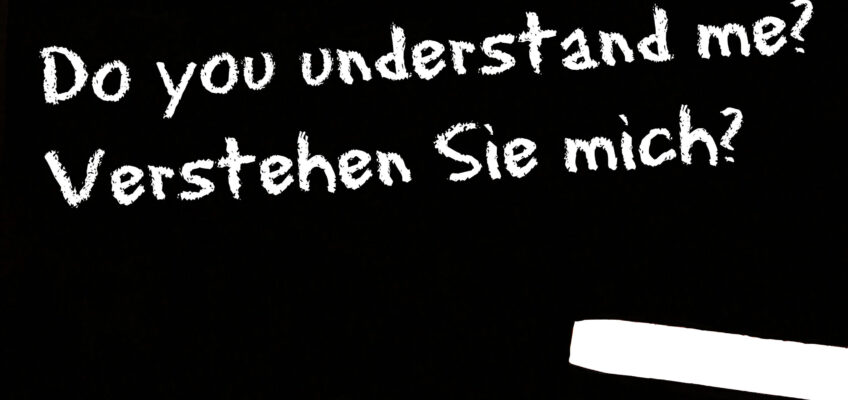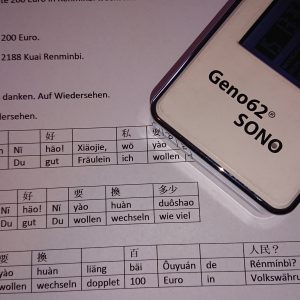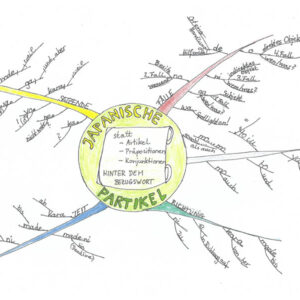In Germany we are now entering the Easter break and there is much discussion about keeping schools open at any cost. There is a feeling, that this generation of students is going to be a „lost generation“ as so many of them lack a considerable amount of knowledge or at least cannot prove that knowledge in tests while they are doing home schooling. These exams and tests are deemed to be the only way to objectively assess a student’s capabilities although they mostly consist of reproducing facts and vocabulary they have been memorizing specifically for that exam. But just how effective is that kind of studying for life? Did the students actually learn something while cramming facts into their heads?
Language Learning and Testing at School
The text books for foreign languages feature ever shorter texts and dialogues that are well illustrated with a lot of pictures. And many teachers deem it to be a waste of time to have the students read those texts aloud. So quite often they assign memorizing the vocabulary as homework and have the students study the texts by themselves. But just how are the students to learn to pronounce those words correctly? Here’s the advice a teacher gave in my daugher’s class: input the vocabulary in Google Translate and have it read to you!
However, in Germany at least we have found this tool to be more like a crutch. It might work for translations from a foreign language to English as it has been developed by English native speakers. But translating from English to languages with a more complex grammar only results in glibberish. And computer-voices are less than adequate for a rich experience of pronuciation, let alone, does it show the variants even between the most common dialects such as British or American English.
In an oral test, however, the student then has to prove that he or she knows the meaning of the vocabulary as is presented in this unit although there might be other meanings in other contexts. They might even have to spell one or the other word. Depending on the teacher, they might be allowed to write it down on the black board. There might be an example sentence taken from the unit, or even a definition to be given (as has been given in the vocabulary list). Even in written tests there is a part about vocabulary organized in a table with the translation in one column and the language learnt in the other.
Memorizing Vocabulary
Interestingly, when memorizing lists of vocabulary, we remember very well where that word was on that particular page, including which word was listed above and which one came after. But what on earth was written in the same line in the other column? That is the pitfall of missing context!
Furthermore, this type of linking a word in the language learnt to the appropriate word in the native language is based on one assumption: That we will be thinking in our mother tongue for the rest of our lives. Before we can utter a sentence in a foreign language we need to translate it in our heads first. But this keeps us in danger of carrying the structure of a sentence in our native language over into the foreign language. That way we will never master the language we are learning. Translating word by word does not work – especially not if you are a German, learning to speak English, French or Spanisch. And the same goes for the other way around: English (and other languages) native speakers trying to learn German.
Literal Translation the other way round
Imagine what it would be like if we could be taught to think in a foreign language? But how can young people learn that? Most tourists used to spend the holidays abroad, but preferably in a resort, where they can get by in their native language.
Vera F. Birkenbihl has created a method of decoding and re-decoding that turns the thought process around: The text in the foreign language becomes the basis that is decoded literally into the learner’s native language. And in these digital times it is very easy to create an exercise for re-decoding by erasing the line in the foreign language.In re-decoding the learner fills in the blanks word by word and experiences for himself and actively how the word order of the foreign language works. I will be posting more in English about the methods for learning a foreign language developed by Vera F. Birkenbihl in the near future.
Testing Aktive Usefulness of Language Proficiency
The German word „Sprache“ is derived from the word „sprechen“ which means „to speak“. In French „language“ is „langue“, and that word also means „tongue“. In English it’s „language“ and this demonstrates the relatedness of both English and French to Latin. The Spanish use „idioma“ for language but in English „idiom“ has a different meaning. So there are many „false friends“ and traps to discover when decoding or re-decoding.
In this Video a German explains in English, that memorizing does not equal learning. Seeing it inspired me to write this article.







